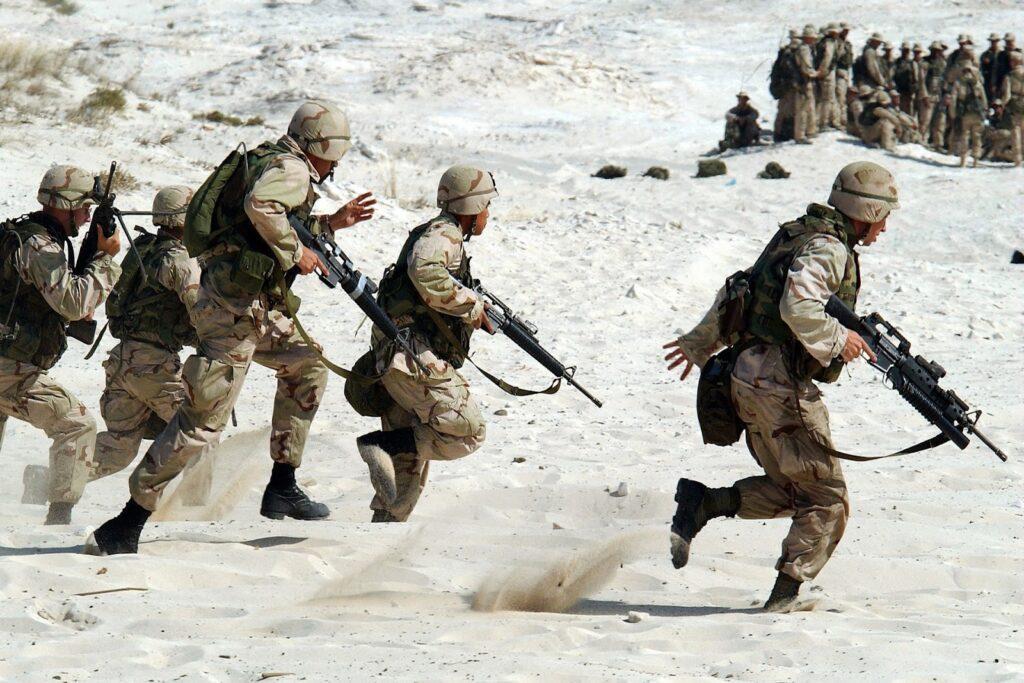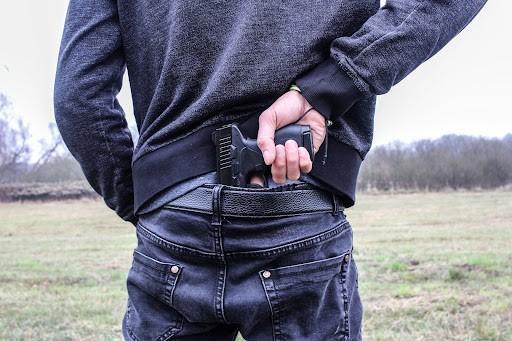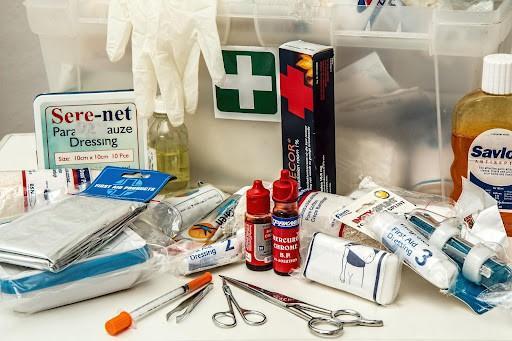The dangers of military conflict or nuclear war are extreme and unfortunate for civilians. Staying safe is imperative in any war zone, whether it’s World War III, a small-scale conflict, or a civil war. These tips will help you and your loved ones stay safe during a war, from how to survive or escape to sheltering and supplies.

Fight or Flight
When trapped in the middle of a war zone, you could engage in fighting the enemy or choose to leave and get away. For either of these instinctual survival strategies, here’s what you can do:
Move Far From The War Zone
When a war or military invasion renders your home and the surrounding area unsafe, relocating and finding another place to settle would be best. You must stay updated on the war’s progress to determine which areas would be safer to settle in.
Locate areas far away from the main fighting zone, like rural areas. Although safer, since fighting is centered around cities and population centers, it’s difficult to receive aid in rural places. Staying safe in such places also requires wilderness survival skills.
Plan Out Possible Escape Routes
Combatting with little or no training could be lethal. In the worst-case scenario that the invasion has or will spread over the entire country, escaping into any neighboring country that accepts refugees is an open option. International law obligates most countries to accept refugees who fear getting killed in their home country.
Ensure you have your passports or equivalent identification documents with you if you plan to escape into another country, as you could be prevented from entering otherwise. Keeping some small valuables hidden could help get cash or supplies in exchange if required.
Often, the war-struck home country provides its citizens with transportation services for escaping invasion. If not, the alternative options are to drive, sail, or walk to the border.
Remember not to duck and run during an attack, not in defense or offense. If an explosion goes off close by or someone begins to shoot, you must try lowering yourself to the ground. Any ditch, hole, or depression offers better protection than even a brick wall.
Contact family or friends who live in other countries to gain information on the possibilities of escaping your country.
Learn to Use Weapons for Self-Defense

With no military training, it helps if you learn how to shoot for survival. If you have access to weapons or can afford to invest in one, it could be vital when confronted by enemy soldiers.
Getting a combat veteran to train you on weapon use will give you a decent chance at survival. Additionally, you’ll have to be aware of choosing your guns, cleaning, maintaining, shooting regularly, and gun safety.
Shooting from a supported position is recommended as standing unsupported shots are difficult. This implies taking a shot either on the ground or against a wall.
Defend if You Must
While you must try to avoid confrontation and violence, if it’s unavoidable, it would be beneficial if you at least had weapons and knew how to use them.
Unfortunately, wartime crises push some people into desperation, trying to hurt or exploit others. If you encounter someone trying to steal your supplies or hurt you or your loved ones, do not hesitate to fight back. Keeping your family or other group members trained on weapon usage works better than only one member knowing how to fight.
Taking Shelter

If you’re caught unaware, staying indoors is a better option than being out in the open, where you could be confronted by an enemy soldier.
Fortify Your Home
If you choose to stay at your home, fortifying it with window and metal door shutters would make it safer. Placing sandbags on the lower sides of walls will provide additional protection. With a cellar or fortified shelter, the chances of survival are greater.
It’s most likely your area will be bombarded before the enemy moves in, requiring you to escape and evacuate eventually.
The Basement of A Strong, Brick Building
Brick buildings, especially with a basement, can withstand damage and provide increased protection as a place of shelter. If there are such buildings around you, keeping note of them will help you move into one when you need to escape from your current shelter.
A building with its windows intact would be beneficial if you’d have to seal it up if there were to be a chemical leak or nuclear attack. Using damp towels can close and block off harmful chemicals from penetrating inside the shelter.
If there aren’t any such buildings, try to locate a structure that has a basement that could offer added protection until the fighting subsides.
A Makeshift Shelter in The Woods
Fleeing from the city or vicinity of the fighting and hiding in a wooded area might help keep you safe. However, you’ll need to stay protected from the elements and construct a suitable shelter soon.
There’s the possibility of hostile people passing through the woods, so you would have to choose a spot that provides sufficient camouflage to build your shelter. Building one around a natural feature, such as a fallen tree, makes it easier and provides support for a larger structure.
Sustenance
With little or no advanced warning about a war breaking out, you must try to stock up on supplies. Apart from gathering valuables and money, you’ll need to hoard up on food and water, keeping everything safe. You must accumulate only what is required for sustenance and what will be easier to carry with you if you had to flee.
Prepare A Survival Kit
Gather all the essentials that you’ll need to survive for a few days:
- Canned goods or wrapped food and bottled water. Keep these for emergency purposes, especially when fresh food and clean water get scarce.
- Medicines, hygiene, and sanitation products
- A first aid kit
- A clean set of clothes
- Important documents like birth certificates, social security cards, marriage licenses, and other proofs of ID
- Sufficient money (withdrawn from the bank if electronic access isn’t possible)
Clean Water

If the war prolongs, you might likely run out of bottled water. You’ll have to locate clean water sources in the vicinity, like lakes or streams. Although these are potential water sources, water purification must be done before drinking. Boiling water for a minute kills any pathogens. You can filter out larger objects with a cloth or fine net.
Avoid drinking salt water if you’re nearby the ocean, even if you’re parched and desperate, since it could lead to serious illnesses.
If you find some clean water source, it would be best to use that and preserve any bottled water you have for emergencies.
If you’ve had no luck finding water, you could collect rainwater (if it happens to be raining) for bathing and drinking by using buckets, containers, and tubs to accumulate it. Of course, this will need to be purified before drinking.
Food

Stock up on non-perishable food and canned items since the regular food supply will most likely be disrupted in times of war. Also, there might be abandoned grocery stores around that have canned or unopened items that you can pick up since there could be a food shortage.
Avoid foods with high salt content foods since these make you thirsty and drink water more than you would normally.
It is always recommended to keep nonperishable food at home, enough to last for at least three days, in case of any emergency or natural disaster.
If you can procure fresh supplies, try to stay healthy by consuming nutritious food that includes vitamins, minerals, proteins, and fatty acids. This will strengthen your immune system and help fight off infections or sickness. In the worst case, if there’s no fresh food around, try taking dietary supplements to compensate for insufficient nutrients.
Knowing how to hunt or fish gives you the advantage if your food supplies run out. Hunting gets you meat, and fishing provides a steady supply of nutritious fish. Additionally, you must ensure the meat doesn’t spoil by properly skinning, bleeding, and dressing it before you consume it.
Wartime makes even the most basic resources like food and water extremely precious. So, you must avoid wasting anything and preserve everything possible. This includes reusing old rags to make clothes and even using food scraps to make broth.
Learn Basic First Aid

Injuries, minor or severe, are inevitable when there’s a war raging around. Basic first-aid knowledge will help treat injuries for yourself or the people around you.
Especially advantageous is learning how to use a tourniquet. This is a device for applying pressure to a limb or extremity to stop blood flow. Tourniquets, when used right, have saved lives tremendously on the modern battlefield.
When treating an injured person, keep in mind to use clean water (not dirty or unfiltered water) to wash wounds. Sterile bandages must be used to cover wounds and must be replaced regularly. CPR skills are beneficial for saving someone’s life during an emergency.
Keeping Calm
Maintain personal relations with family, neighbors, and friends during these tumultuous times. They will help you through the crisis and ease your stress. Neighbors could also help by sharing food and necessities.
Staying positive and calm gives way to logical thinking for survival. Develop and refine emergency plans for any situations that may arise. Reducing anxiety and stress is important, as is building and maintaining personal relationships to keep your composure.
Conclusion
With two world wars behind us, although the Geneva Convention accords the safety of civilians and guarantees against war crimes, a civilian caught in the middle of a war zone must try to keep safe and alive. With a clear mind and a positive attitude, keeping in mind some basic strategies, it is possible to survive a war.
